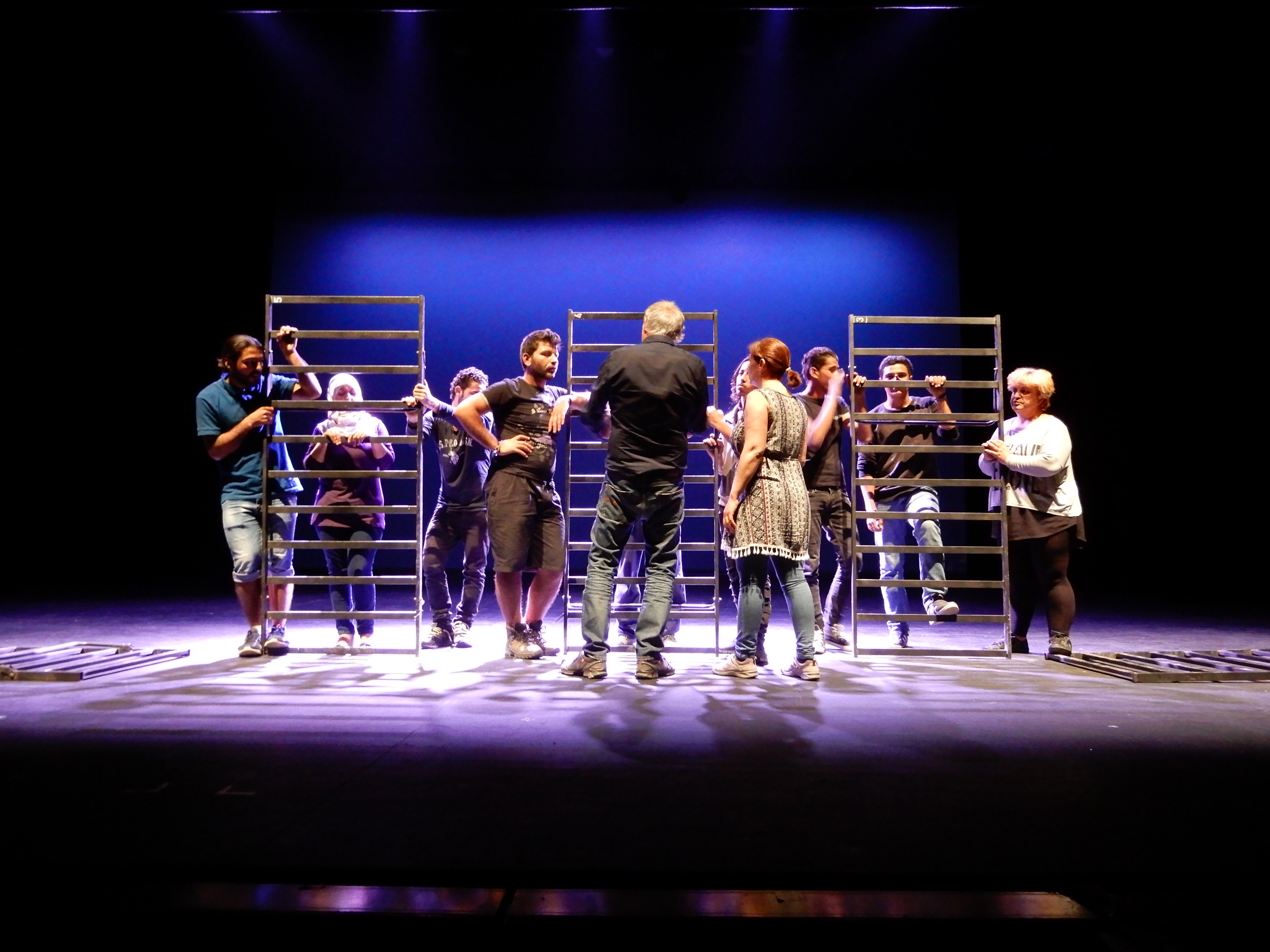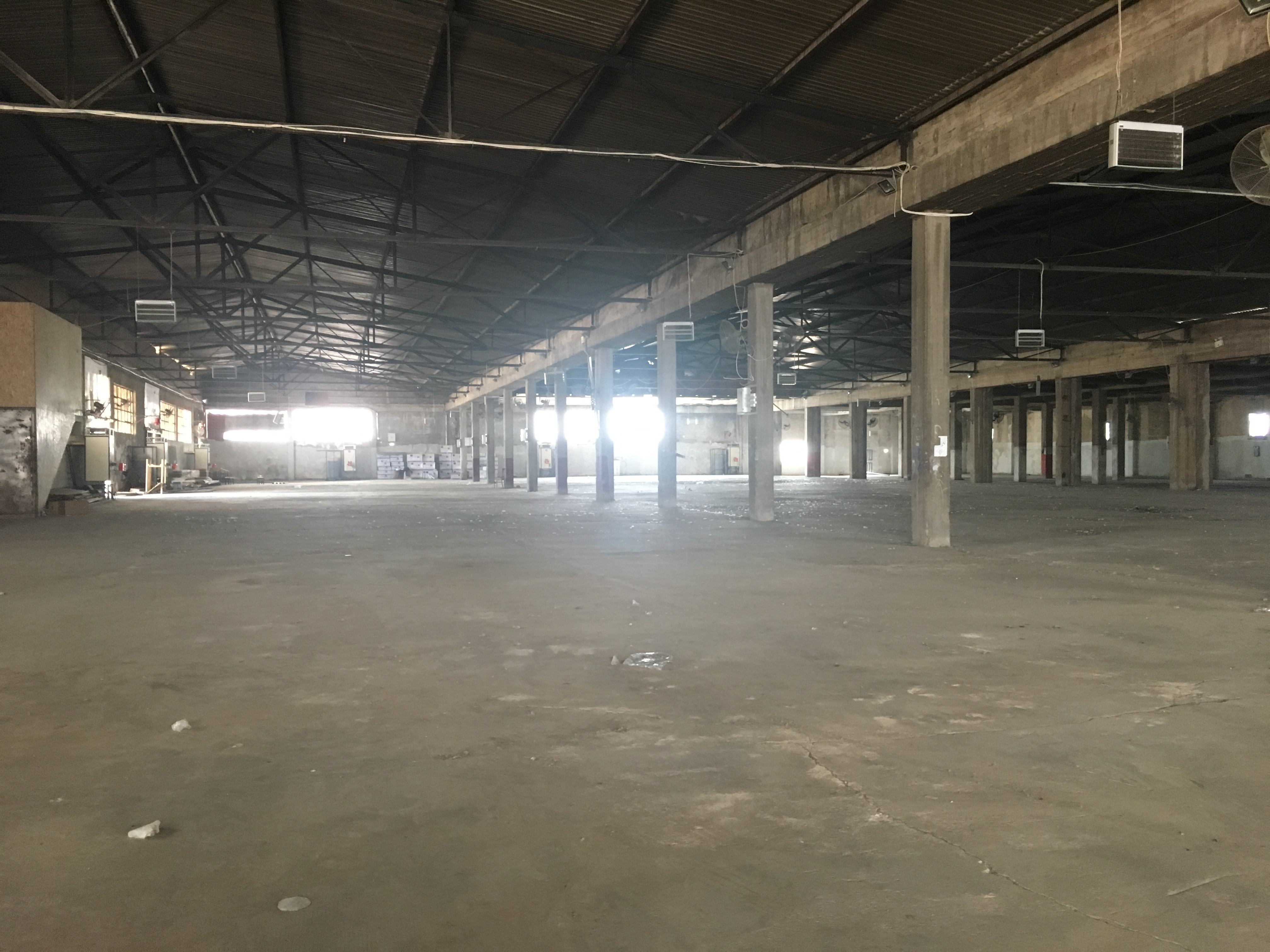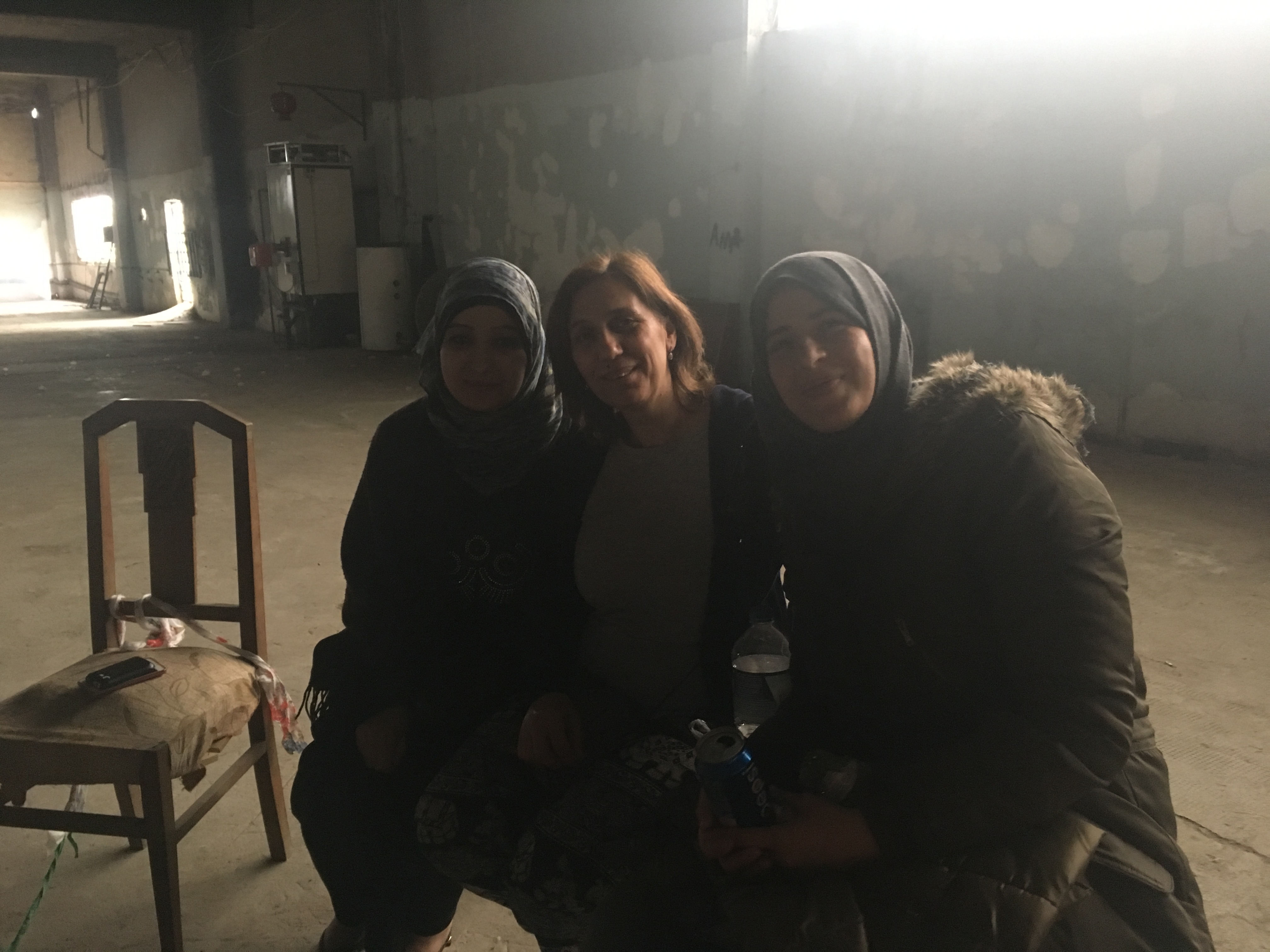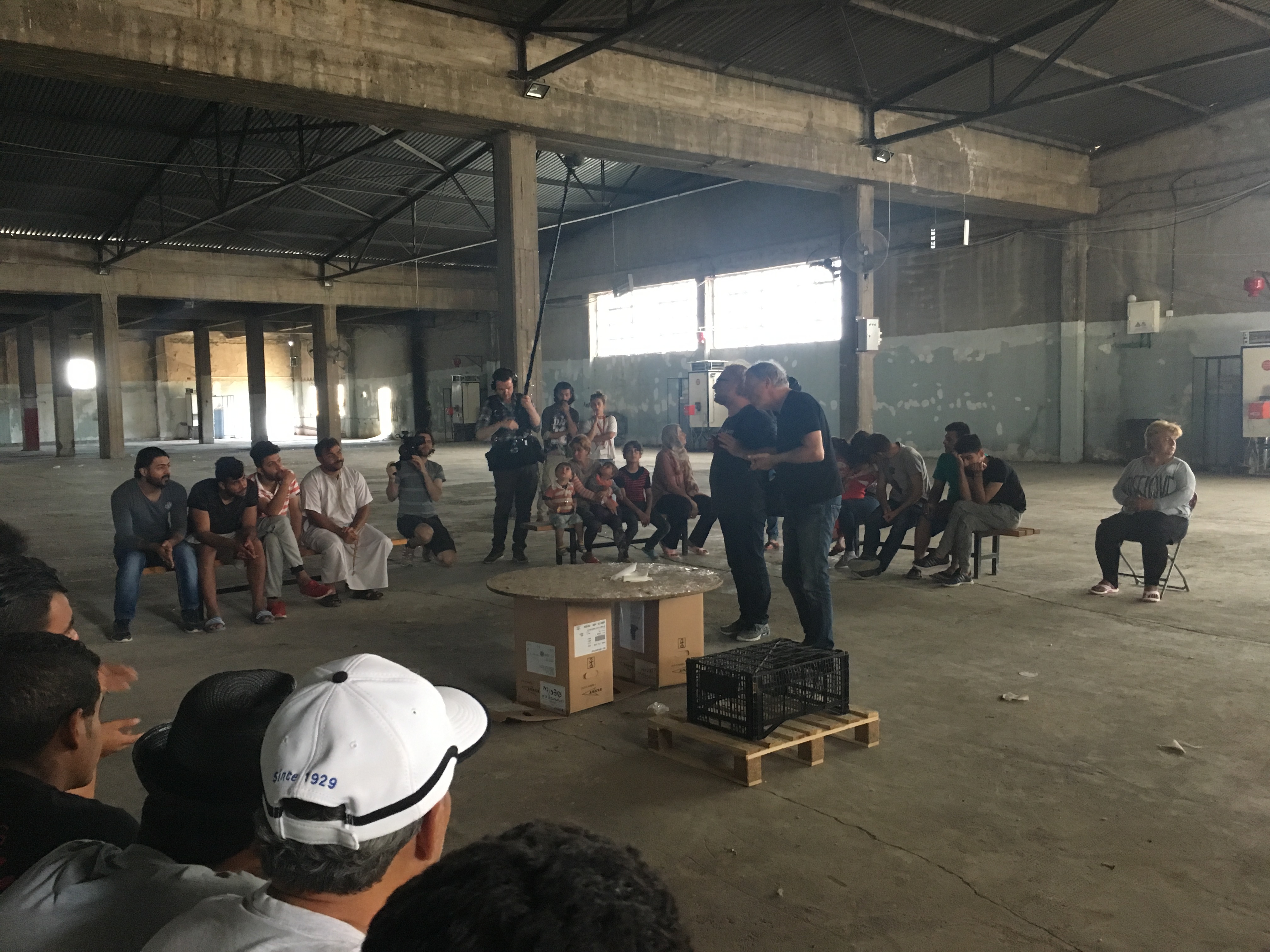Finding Home
– en workshop och en teaterföreställning i flyktinglägret Softex Camp, Thessaloniki

Repetitionsbild. Färden över Medelhavet i gummibåt.
Den 19 maj 2017 åkte Kent Ekberg och Kajsa Nordin från Teater Reflex tillsammans med musikern Mousa Elias och Raida Ibrahim till Thessaloniki, Grekland för att arbeta med kultur i ett flyktingläger. I lägret fanns 600 flyktingar. Tillsammans med forskaren Maria Kaika (Professor, University of Amsterdam) och Henrik Ernstson (PhD, University of Cape Town) ville vi undersöka vad som krävs för att skapa hemkänsla och trygghet, både yttre och inre faktorer. Vilken roll kan kulturen spela i detta sammanhang? Projektet började som en workshop och avslutades med en teaterföreställning på en av de stora teatrarna i Thessaloniki.
Så här presenterade Maria Kaika föreställningen från scenen. Läs hela hennes intro längre ner..
” What you’re about to see onstage is nothing short of a small miracle. Our team was formed only 10 days ago inside the softex camp. Ten days. This is all the time it took for the authors – actors to create the play you’re about to see with the guidance of Kent Ekberg and Mousa Elias.
It is not a fine and stylised theatre show. It is a story in progress. It is many stories weaved together through text, movement, feelings, and music. It is their stories. But at the same time it is our stories too. It is a universal story.”
Foto Kajsa Nordin
Sagt om föreställningen

MARIA KAIKA presenterar projektet innan föreställningen:
” What you’re about to see onstage is nothing short of a small miracle. Our team was formed only 10 days ago inside the softex camp. Ten days. This is all the time it took for the authors – actors to create the play you’re about to see with the guidance of Kent Ekberg and Mousa Elias.
It is not a fine and stylised theatre show. It is a story in progress. It is many stories weaved together through text, movement, feelings, and music. It is their stories. But at the same time it is our stories too. It is a universal story. Not only of refugees, but also of people imprisoned in all sorts of different forms of un-freedom: whether this bears the name of poverty, debt, economic crisis, overbearing bureaucratic institutions, etc
We know their story —more or less
So why watch it again in a theatre? Because unless new people take on the role of the protagonist, the truth cannot be told or restored. Because unless refugees narrate their story not as pityful subjects, but as people on stage, in a position of power, in the role of the protagonist, the social stereotypes that lead to racism cannot be overcome.
Theatre, as a par excellence political act has the power to create new protagonists, to overturn old, and create new collective myths, new collective social imaginaries. Ιn Sophocle’s play, Antigone overturns on stage the traditional roles. From a powerless woman caged in the prison of patriarxchical tradition, she becomes the heroin who enacts her own liberation. In our story, the refugees stop being objects of philanthropy or racism, or even curiosity, and become instead protagonists. Through narrating the history of their own trajectory, roles shift, even meanings of everyday objects change. The beds onstage look a lot like the bare beds they used to sleep on inside the main hall of the softex camp.
But as the narrative of the play evolves, the beds change, like the people change. They become first the prison, the war, the violence, from which they tried to escape. They then become the boat that takes them across. For they become the stones, that made a bridge to cross the river. Or the tent to protect them from the rain.
As the story of people and objects is repeated from mouth to mouth, maybe it has power to create new myths and to change the collective consciousness of the society as a whole.
Our story will be narrated in three different languages. English, Greek, and Arabic.”
But in fact it hardly needs words to be told.

























